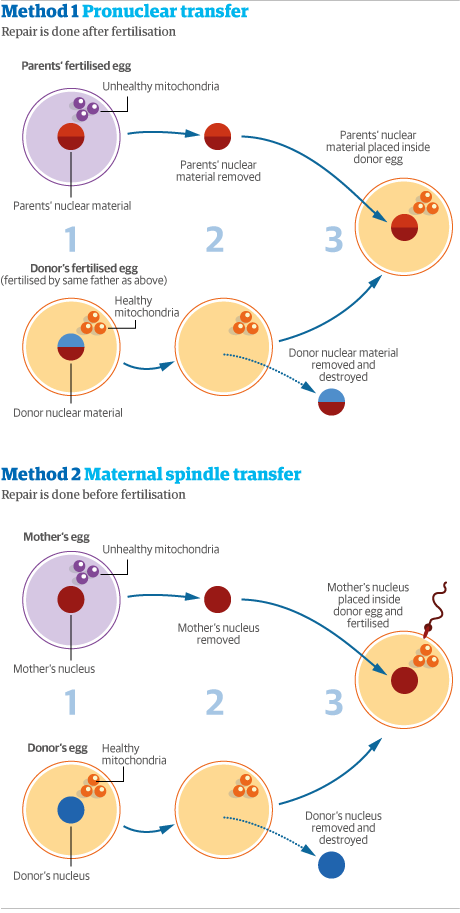UK Gov Backs IVF Technique That Uses DNA From Three People
Source: guardian.co.uk
The government is to push ahead with plans that would allow doctors to prevent major childhood diseases by creating IVF babies that have genetic material from three people.
The controversial procedure, called mitochondrial transfer, uses a snippet of DNA from a healthy female donor to prevent mothers passing on devastating genetic disorders such as muscular dystrophy and heart and liver conditions.
Pioneered in Britain by researchers at Newcastle University, the procedure targets diseases caused by faulty mitochondria – the tiny power units inside our cells. The disorders tend to affect parts of the body that need the most energy, including the heart, brain and muscles. Around one in 6,500 people is born with a mitochondrial disorder, making such conditions more common than childhood cancer.
Dame Sally Davies, the chief medical officer for England, announced the move at a briefing in London on Thursday. "It’s only right that we look to introduce this life-saving treatment as soon as we can," she said.
A consultation by the Human Fertilisation and Embryology Authority (HFEA) published in March suggested the public was generally supportive of the technology. Draft regulations are expected to be ready this autumn.
If MPs approve the regulations, due to be debated in parliament next year, Britain would be the first country to endorse the radical treatment. Before the end of 2014 doctors would be able to apply for permission to offer the procedure on the NHS.
But some groups oppose the procedure because one approach involves the destruction of IVF embryos. The technique also crosses a line in medicine because it makes genetic modifications to an embryo that will pass down to all future generations. That raises the risk of unforeseen complications affecting generations to come.
While the procedure has been shown to work in animals, it has never been tested in humans. For this reason, Davies said any babies born through the process must be followed up to ensure they are healthy. "This is not a decision to take lightly," she said.

[...]
Read the full article at: guardian.co.uk






















